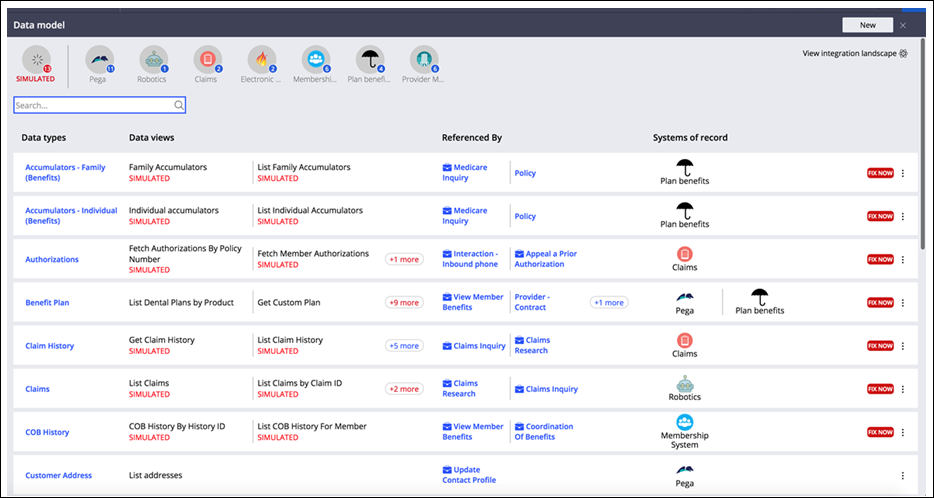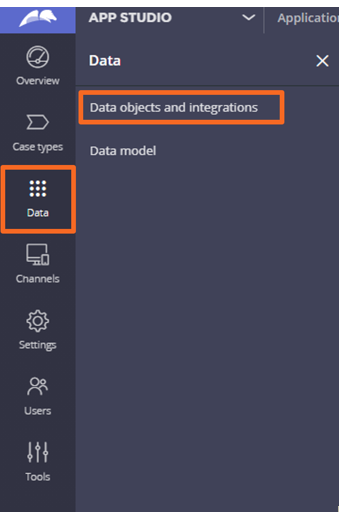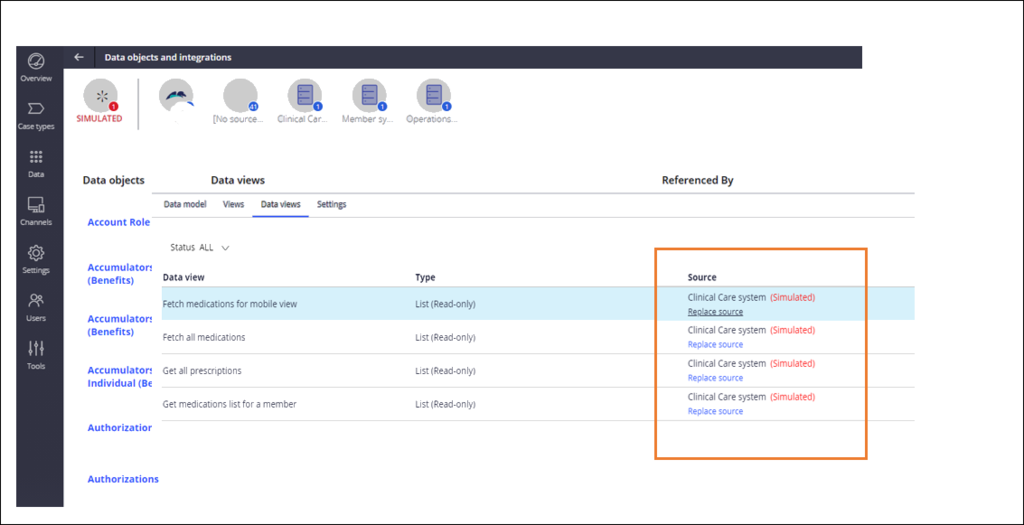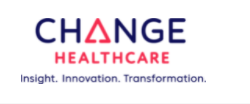
Pega Care Management integrations
Pega Care Management™ can integrate with other applications or systems that support your organization and is a very important part of Healthcare interoperability. Healthcare interoperability describes the seamless exchange of information between electronic data sources aimed at ensuring the best possible outcomes for the health and well-being of consumers.
Identify integration points as early in your planning as possible. If you require a connection to an external data source and either the data does not exist, or the interface to that data does not exist, you need to account for the time to publish these data sources and the time to configure the interface for the application. For example, you determine how the Care Management member profile information integrates from your organization’s record system.
Other examples of data sources include:
- Electronic Medical Records (EMR) which are maintained by providers and hospitals to manage patient care
- Clinical data repository or clinical data warehouses, where patient data is stored i.e. claims data.
- Government owned databases, or public health registries that manage population data, publish clinical protocols and house patient data i.e. vaccinations.
- Medical devices i.e. physiological health monitors
Pega provides an easy way to manage all of this external data through the Integration Designer. The Integration Designer allows you access to a comprehensive view of all business objects in your application and their associated data, such as references, data sources, and data views. You can easily create and modify data objects and connect to data sources.
Integration Designer
The Integration Designer provides a single location for viewing all the business objects, data views, object dependencies, and external systems in an application.
The Integration Designer landing page displays how all the components are connected, including:
• Data types that are used in your application.
• Data views for the data type.
• Case types and data types in the applications that use the data type.
• Systems of record that are the sources for the data.
You can create and modify data objects and connect to data sources by accessing the Data objects and integrations landing page from the menu in the navigation pane of App Studio.
You can then locate each data type with a label of Simulated and use the Replace Source link to connect a data type to real data.
For more information, see Managing data and integrations with the Integration Designer.
Connector implementation
When you integrate your care management application with a Change Healthcare InterQual, MCG CareWebQI, or MCG Disease Management connector, you can access more healthcare information for patients.
Change Healthcare InterQual
The Pega Change Healthcare Interqual Integration Solution is bundled with the Pega Care Management and is referred to as a connector.
The connector integrates your care management application with the Change Healthcare CareEnhance Review Manager Application. This feature is licensed separately and requires a subscription service with Change Healthcare Interqual.
With this connectivity, you can use Change Healthcare InterQual directly in Pega Platform™ and have real-time, bi-directional interaction with the InterQual system.
Features of the connector include:
• InterQual book view for research on guideline subsets from the patient portal
• Seamless integration of InterQual guidelines during a UM Review
• Dynamic submission of Pre-Cert information for targeted criteria search
• Hospital stay concurrent review
• Automated Pre-Cert decision-based InterQual criteria met status
• The Review Manager case associated with Pre-Cert request
For more information, see Integration with external systems and the Pega Integration Solution for Change Healthcare InterQual Installation and Integration Guide.
MCG CareWebQI and MCG Disease Management
The Pega Integration Solution for MCG CareWebQI connector integrates Pega Care Management with the MCG CareWebQI application to provide access to evidence-based best practices and guidelines to document your use of comprehensive, consistent utilization management practices.
The Pega Integration Solution for MCG Disease Management connector integrates Pega Care Management with the Informed by MCG for Disease Management solution to provide chronic care assessments and care planning tools for use in patient care. With real-time access to chronic care guidelines, care managers can integrate these services into their workflows and rapidly build, document, and share care plans. The modular guidance makes it easy to provide patients with education and self-care. This guidance helps reduce the incidence of emergency care use, 30-day readmissions, and preventable adverse outcomes for individuals with chronic disease and other complex conditions.
For more information, see Integration with external systems, the Pega Integration Solution for MCG CareWebQI Installation and Integration Guide, and the Pega Integration Solution to Informed by MCG Chronic Care and Transition of Care Guidelines Installation and Integration Guide.
Microsoft Exchange web services
You can also integrate your application with Microsoft Exchange Web Services to schedule appointments, check the availability of the participants, and send them invitations to the meeting for visit planning.
For information about the preconfigured SOAP web services for integrating with Microsoft Exchange Web Services, see the Pega Foundation for Healthcare Implementation Guide.
Integration using FHIR
With the Fast Healthcare Interoperability Resources (FHIR) APIs in Pega Foundation for Healthcare, you can integrate your application with external electronic medical or health record (EMR/EHR) systems and other clinical data repositories. By using FHIR APIs, you can obtain specific information about the patients that you manage in your application. For example, you might want all new referrals or authorization records for a patient from a third-party system. Or, once you have the initial policy information for a patient, you might want to receive updated policy records on demand.
FHIR supports the interoperability and exchange of healthcare-related information between organizations. This information includes clinical, administrative, public health, and research data.
Tip: Identify the FHIR APIs to use for integration with your care management application. For more information, see the FHIR API Technical Specification Guide.
Check your knowledge with the following interaction:
This Topic is available in the following Module:
If you are having problems with your training, please review the Pega Academy Support FAQs.
Want to help us improve this content?




